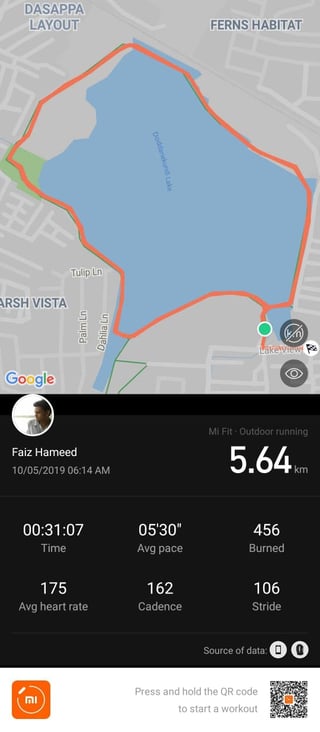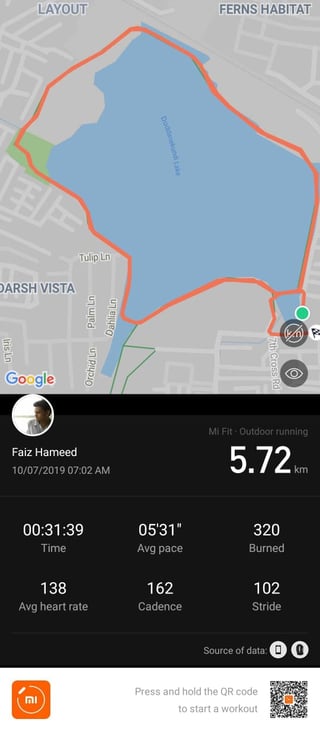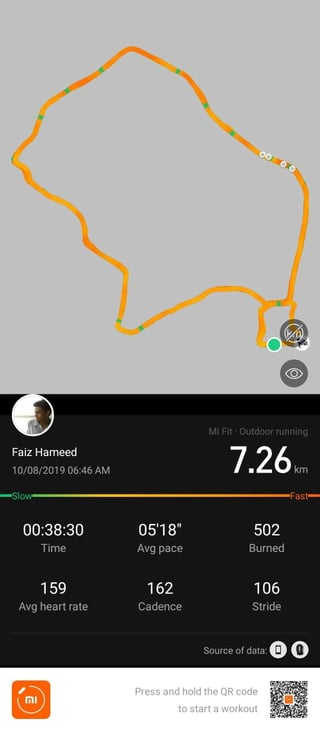Getting a little more technical than JohnPs answer, what it comes down to is Aerobic vs Anaerobic conditioning.
With Aerobic exercise you are keeping within your "oxygen budget", your body has enough oxygen available to supply the requirements of your muscles. When you are exercising at a constant intensity over a long interval you are in the aerobic phase, jogging and distance running are classic examples of this.
Conversely with Anaerobic exercise, you are outside your "oxygen budget". The oxygen demands of the muscles outweigh the amount of the oxygen freely available in the body. Activities which are short and intense are when you enter the anaerobic phase. Sprinting is the classical example here.
Soccer contains both elements. There are periods of jogging around the field, accompanied by intense bursts in attack and defense.
To improve your performance on the soccer field you need to condition both your aerobic and anaerobic fitness. You've got aerobic covered, but remember "variety is the spice of life". You need to incorporate some anaerobic conditioning.
Look at incorporating :
- Flat Sprints
- Hill Sprints
- Stair Sprints
- Skipping
- Chin Ups
- Push Ups
- Boxing training
Also a good general article on some anaerobic exercises.
Don't forget to also include a rest day for your legs before a match. You really don't want to be doing anaerobic leg conditioning the day before the match.


